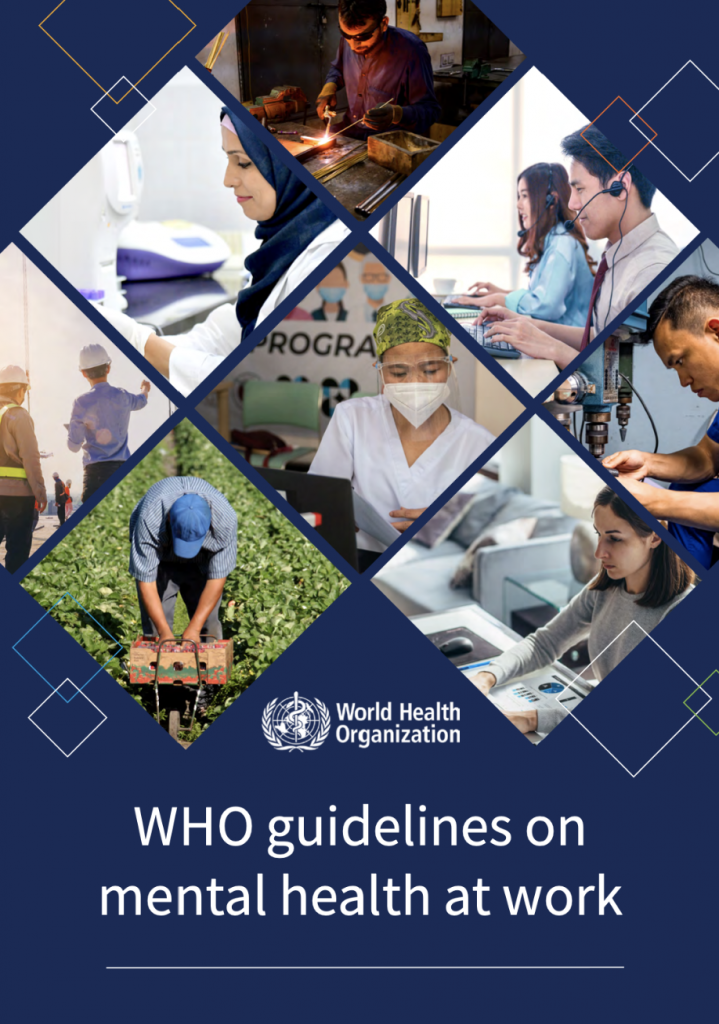Executive summary
For a large proportion of the global population, mental health and work are integrally intertwined. Mental health is more than the absence of mental health conditions. Rather, mental health is a state of mental well-being that enables people to cope with the stresses of life, to realize their abilities, to learn well and work well, and to contribute to their communities. Mental health conditions occur irrespective of whether work has causally contributed to them. Poor mental health has a negative effect on a person’s cognitive, behavioural, emotional, social and relational well-being and functioning, their physical health, and their personal identity and well-being as related to work. A person’s capacity to participate in work can be consequently impaired through a reduction in productivity and performance, reduction in the ability to work safely, or difficulty in retaining or gaining work. Presenteeism (or lost productivity, which is where the largest financial costs lie), absenteeism and staff turnover affect both workers and employers and, in turn, the society’s economy. An estimated 15% of working-age adults have a mental disorder at any point in time. The size of the public health problem of mental health conditions is greater than the volume of investment to address it. This is the case despite international conventions calling for the protection of workers’ physical and mental health through national policies in occupational safety and health.


